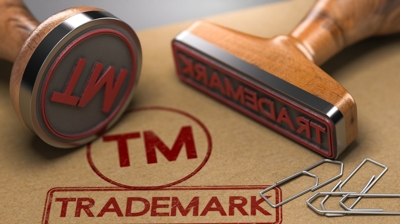
Creditors’ Rights Attorney in Seattle
Helping Clients Collect Debts
As a business, you might find yourself in the position of having customers who owe you money for products or services you provided them. As the creditor for someone who has borrowed from you, you have rights to collections and assets recovery, but you should understand what legal options you can take to recover funds.
At NWBizLaw, we have extensive knowledge and experience in creditors’ rights and lawful collection strategies. We will assess your situation and determine the best course of action so you receive what the borrower owes you without risking a claim of creditor harassment.
Call (206) 565-0090 for assistance from our Seattle creditors’ rights attorney today.
Collection of Debt
If you don’t feel like you’re able to get the money you’re owed on your own by contacting a debtor directly, then you’ll probably move on to debt collection through other means. One common method is to enlist the aid of a debt collections agency, an organization that typically collects a percentage of the debt and additional fees. However, you need to understand the regulations put in place by the Fair Debt Collection Practices Act and what applies to debt collections agencies.
The Fair Debt Collection Practices Act outlines lawful collection actions and prohibits harassment. Collectors must follow these guidelines to avoid an accusation of harassment, and you may risk becoming involved in this accusation as well. We will help you work with a collection agency and ensure they intend to follow the law.
Court Actions
If you decide to forego debt collections agencies, or you have already tried it and come up empty-handed, then you might need to go to court. Suing over collections and assets recovery as a creditor is expensive, but it’s sometimes the only way to enforce your rights as a creditor. In extreme instances, you can actually receive the debtor’s property prior to the court’s decision on the matter. Other possibilities include replevin action and attachment, which allow the creditor to take back financed property if payments stop.
Lawsuits and Leins
When you successfully sue a debtor, the result is an enforcement judgment enabling you to claim property from the debtor until the debt is paid in full. This often involves the assistance of a local sheriff. On the other hand, you can opt for a lien, which is a legal claim to the property of a debtor. This is primarily useful for real estate, where you can have a lien against the debtor’s property equal to the judgment granted. Having a lien on the property could allow you to reclaim your money through foreclosure.
Contact Our Legal Team to Discuss Your Options
Deciding the most appropriate way to collect debt may be challenging without years of experience and training. At NWBizLaw, our lead attorney has the skills and resources needed to help you make an informed and strategic decision. Our Seattle creditors' rights attorney will work to advance your best interests and, if necessary, represent you in a court of law with a steadfast commitment to your future.
Request a consultation by calling (206) 565-0090 today.

-
 Understanding the Basics of Intellectual Property
Understanding the Basics of Intellectual Property -
 Understanding Workplace Harassment: Types and Implications
Understanding Workplace Harassment: Types and Implications -
 Protecting Your Brand in the Summer Sun: Intellectual Property Strategies for Seasonal Businesses
Protecting Your Brand in the Summer Sun: Intellectual Property Strategies for Seasonal Businesses -
 Why Register Your Trademark?
Why Register Your Trademark? -
 What Are the Key Elements of a Successful Business Contract, and How Can a Business Lawyer Assist?
What Are the Key Elements of a Successful Business Contract, and How Can a Business Lawyer Assist? -
Breach of Contract in Washington: Common Pitfalls and How to Avoid Them
-
 Navigating Mergers and Acquisitions: The Essential Role of a Business Lawyer
Navigating Mergers and Acquisitions: The Essential Role of a Business Lawyer -
 Strategies for Effective Defense Against Discrimination Claims
Strategies for Effective Defense Against Discrimination Claims
"The time Eric spent with me saved me thousands of dollars!"The time Eric spent with me saved me thousands of dollars in legal fees and saved my business. Thank you Eric and Northwest Business Law!
- Charlie Muhlenkamp



-
Our Firm
-
Meet Your Attorney
-
Video Center


Why Northwest Business Law LLC Stands Out
-
Won Millions for Clients
-
Customized, Strategically Intelligent Approach
-
15+ Years of Legal Experience
-
Tailored Solutions for Each Client

.2409131318349.jpg)




.2309061512550.jpg)